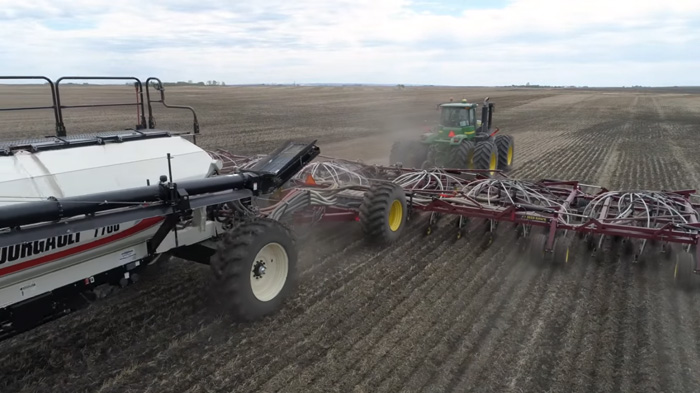Manitoba Agriculture reports a mix of rain and snow across the province over the past week has halted spring seeding pushing planting behind the five-year average.
Dennis Lange, a pulse and soybean specialist with Manitoba Agriculture and editor of the provincial crop report, says on May 24th a system brought significant precipitation to the province including intense rainfall with areas around Winkler receiving upwards of 87 millimeters of rain which resulted in standing water in the fields while areas to the west, including Brandon, received snow.
We’re currently sitting at 64 percent and that is behind the five-year average of 75 percent and seeding has pretty much stopped since last week. Thursday was the last day that most farmers in this area would have done some seeding. Travelling around the south end of Manitoba there’s no activity in the fields yet. There’s the odd sprayer I’ve seen going but those fields are still a little bit wet. Nobody’s really been seeding so we’ll have to wait a few more days yet before we can get back into the fields again. Things are kind of at a standstill.
With the cooler weather weed growth is still progressing. Crop growth has slowed a little bit but weeds always typically go through so it’s always important for growers to be scouting their fields to make sure they know what weed pressure is there so, when it dries up enough they can go ahead an get back into the fields again.
I’m expecting some seeding to start up probably the weekend if we don’t get any more rainfall and definitely into next week. For some growers that are in areas where seeding deadlines are fast approaching, on edible beans for example, they have to pay attention to what their MASC seeding deadlines are to make sure they’re within those seeding deadlines. We still have a little time here but that’s something growers have to be aware of over the next two weeks.
~ Dennis Lange, Manitoba Agriculture
Lange says the Interlake, which experienced rain even before this last system went through and is still wet, is the furthest behind right now compared to the central region which is furthest advanced. He says, once farmers get back in the fields they’ll, make some pretty good progress but right now its a bit of a waiting game.




